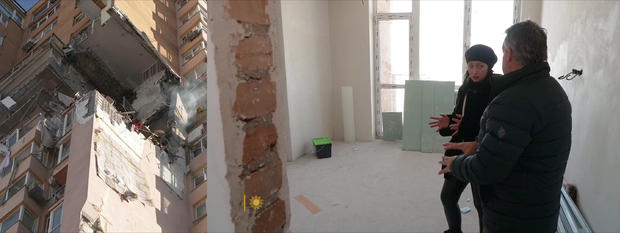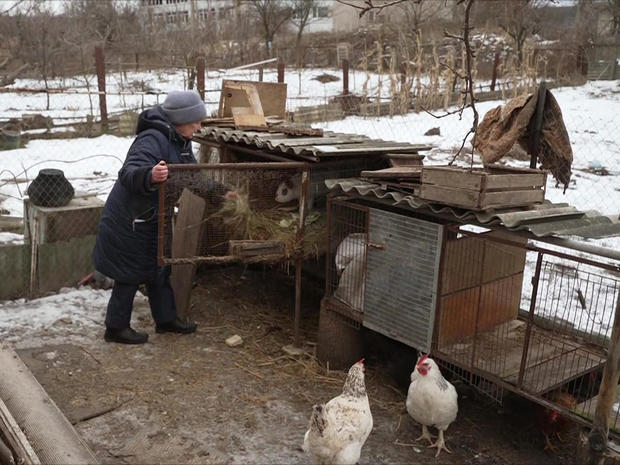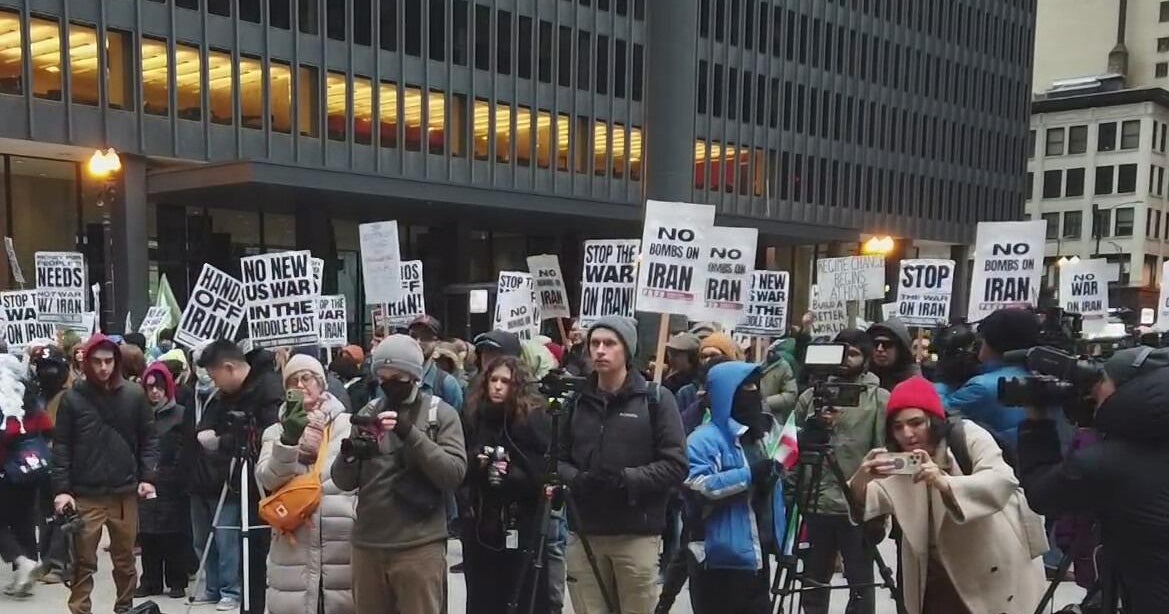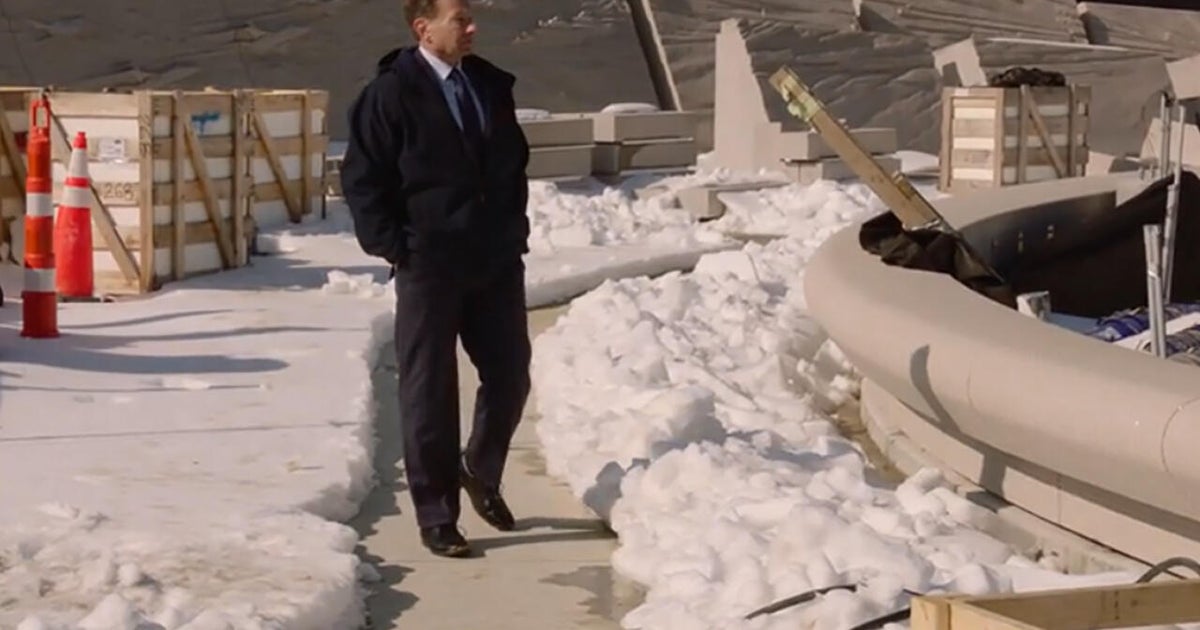Life in Ukraine after a year of war
Twelve months of bloodshed following a full-scale Russian invasion; tens of thousands of troops killed on both sides, with two determined leaders each promising victory for their side … a David and Goliath conflict dragging on and on.
And yet, life in Ukraine after a year of war depends entirely on where Ukrainians are trying to live it.
Russia failed to capture the capital, Kyiv, where those who haven't fled are trying to carry on as normal. Many families who escaped in the early days have since returned.
But the war that's created 8 million Ukrainian refugees is never far – and sometimes very near. Everywhere is within missile range.
Last February one of the first strikes in Kyiv slammed into a high-rise. We rushed to the scene when it happened to report on the damage. We returned a year later, to find the giant scar outside the building now healed.
In one apartment we met Tatyana Leshchuk, a lawyer in Kyiv, who described how the room had been destroyed completely. But her anxious daughter got up early that Saturday morning. "They were in the hallway when the missile hit," she said. "God saved her and saved me and saved my husband. It was very scary for me."
D'Agata said, "Well, it's brave to come back."
"Thank you. I want to live in my country because it's my home," Leshchuk said.
Travel further east, and the landscape changes dramatically – more evidence of a country in the grip of the biggest and bloodiest military confrontation in Europe since World War II.
There's more of a military presence, more checkpoints, much more damage. And on some parts of the frontline, where we went this past week, the fighting – the incoming and outgoing artillery – never ceases. The sound of explosions has been nonstop.
Ukraine's second city of Kharkiv is within easy range of Russian rockets, and the war feels closer because it is. Yet even here, people refuse to stop living.
Then, there are the countless towns and villages along the frontline, or what used to be the frontline, now virtually deserted, showing widespread destruction – first from when the Russians invaded, then when the Ukrainians forced them out.
Raissa Fateeva was one of only a few hundred people who stayed in her village east of Kharkiv.
She described waking up one morning to find Russian soldiers in the street, taking up positions around her home.
D'Agata asked, "That must have been terrifying; what was going through your mind?"
"I don't even know how to describe it," Fateeva said. "It was very tough, very scary, because there was no gas, no power. We were thinking of how we were going to stay alive."
Fateeva showed us the tiny cellar where she and her son took shelter during the fighting. She said the worst of it came when Russian soldiers withdrew and began to bombard the neighborhoods when Ukrainian troops moved in. Fighting blew out her windows, and tore shrapnel throughout her property in a battle that waged for months.
So, what is life like now here? "I can say we live well," Fateeva said, "but I want it all to end, for there to be peace, so there is no more shelling, because that was very scary."
For now, they're surviving largely on humanitarian aid.
At least they have their home, and their freedom. Those Ukrainians living under Russian occupation have even less.
Story produced by Mikaela Bufano and Justine Redman. Editor: Mark Ludlow.
See also:
- Helping a wounded Ukrainian soldier walk again ("Sunday Morning")
- The war in Ukraine: Convincing Putin he holds a losing hand ("Sunday Morning")
- How Ukrainian chef Ievgen Klopotenko defends his country: With food ("Sunday Morning")
- Illegal annexation of territory by Russia doesn't halt Ukraine forces ("Sunday Morning")
- Russia's invasion after 100 days: Ukraine goes on the offensive ("Sunday Morning")
- What are the prospects for pursuing Vladimir Putin for war crimes? ("Sunday Morning")
- The plight of Ukrainians fleeing Putin's war ("Sunday Morning")






